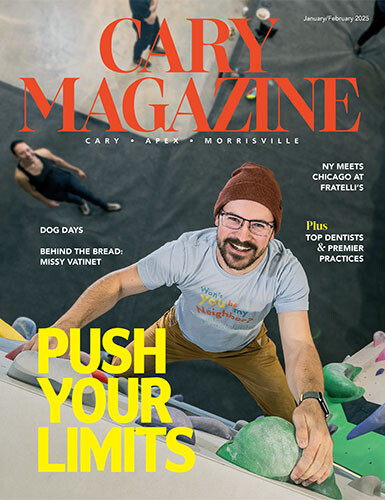Tired of social distancing? That’s only human.
Several UNC Health providers offered ideas for positive things to do — for our minds, bodies and relationships — as physical distancing continues. Try one or all, and you might feel better about living through this difficult time.
1. Focus your attention on helping someone else.
Psychologists have long known that when we think about ourselves and our problems all the time, unhappiness follows. But thinking about how you can help someone else, whether that’s somebody in your household or a total stranger, can ease that person’s burden and your own.
“I feel best when I text or call a friend each day, starting with ‘How are you doing?’ and ending with ‘Is there anything I can do for you?’” said Dr. Adam Goldstein, director of UNC Tobacco Intervention Programs.
Remember that virtually everyone is struggling right now, adds UNC Health cardiologist Dr. Christopher Kelly. “People are stressed and, in many cases, on the brink both emotionally and financially. Be a compassionate neighbor, friend, co-worker and family member, and ask how you can help,” he said.
2. Challenge yourself in the kitchen.
Cooking something new is a great way to exercise your problem-solving and creative muscles, keeping your brain occupied on something positive.
This time can be an opportunity, says UNC Health family medicine physician Dr. Dana Neutze. “In our typical busy lives, we don’t always make time to try new things or explore possibilities. Trying a new recipe gives you an easy way to push your boundaries and enjoy some delicious food too.”
3. Call or email a friend from your past.
Ever think about a long-ago friend and wonder what’s going on with him or her? Now’s your chance to find out.
“Contact your best friend from elementary school, middle school or high school,” says UNC Health psychiatrist Dr. Bradley Gaynes. Of course, any friend from yesteryear will do: A college buddy or a former neighbor might be your long-lost connection.
“The lockdown has given us the opportunity to slow down — a lot — and reconnect with folks who were so important to us before, but whom we haven’t had the chance to think about for a while,” he said. “Find them, contact them, catch up.”
4. Put a daily walk on your schedule.
It’s important to do some moderate exercise every day, and a brisk walk will suffice, says UNC Health stroke neurologist Dr. David Y. Huang. “This is both for cardiovascular health as well as a means of taking your mind off things that are causing emotional distress,” he said.
If you’re not moving at all, work up slowly to 30 minutes a day. You can start with walking five minutes at a time. That daily walk will reduce your aches and pains, says UNC Health physical therapist Kristin Somerville.
“We may be spending more time in our homes, but our bodies are resilient and designed to move,” she said.
5. Make something with your hands.
If you have the time, choose a manageable at-home project that requires your hands. Pick an activity you will enjoy, whether it’s painting a birdhouse, crocheting a blanket, planting flowers or completing a jigsaw puzzle.
“Using our hands can help our minds focus on the task and avoid wandering into thoughts of stress or anxiety,” says UNC Health family medicine physician Alexa M. Mieses Malchuk. “Having a project you can start and finish provides a sense of accomplishment.”
6. Take five minutes to try a beginner’s meditation exercise.
The benefits of meditation on our emotions and bodies are well documented, but it can be intimidating to think about sitting in stillness and paying attention to ourselves.
Just know that you don’t have to meditate for a long time to start reaping the benefits of mindfulness. UNC Health psychologist Dr. Amanda Harp offers this exercise:
First, take a few seconds to pay attention to your breath. In and out, in and out.
Then, “check in with each of your five senses. Identify five things you can see, four things you can feel, three things you can hear, two things you smell and then notice the one taste in your mouth,” Harp said. “If you like that, listen to some guided meditations online or download an app.”
7. Leave your phone inside and go outside.
Do you ever feel like all you do is stare at a screen, whether it’s your phone, computer or TV? Give your eyes and brain a break, even if it’s just for 15 minutes.
“Get outside and connect with nature,” says UNC Health psychiatrist Dr. Samantha Meltzer-Brody. “It is very restorative and helps people feel grounded with the natural world and to unplug from devices.”
You don’t have to go to a nature preserve or park to do this, although those are great options. Your own backyard or deck will suffice.
8. Connect with your purpose.
This one sounds major, but it’s not as intimidating as it seems.
“This is a great time to find your why,” said Dr. Crystal Schiller, UNC Health psychologist. “That means answering the question: What does it mean to be you? How do you want to show up for yourself and others during this time?”
You might want to be a more patient parent or a more loving spouse, or you might decide to make time for a creative pursuit or volunteer project.
You don’t have to be perfect or change your entire life. It’s about figuring out who you want to be and what you want to do, and “finding small ways to try to show up as that person each day,” Schiller said.
After all, COVID-19 isn’t going away anytime soon, but we can be good to ourselves and others in the meantime.
This article originally appeared on the UNC Health Care blog, “UNC Health Talk.” It is reprinted with permission.





